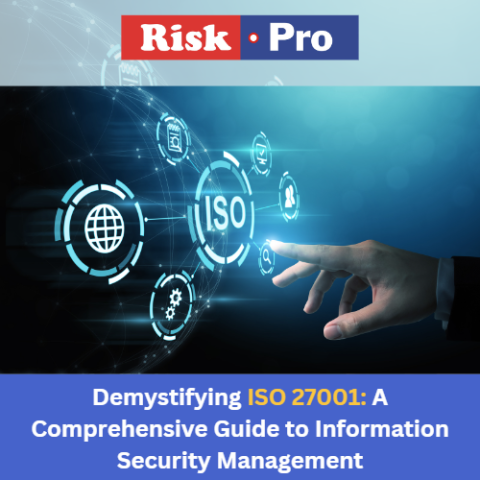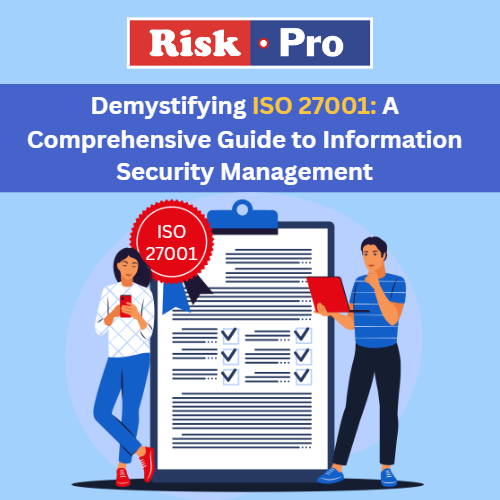
In an increasingly digital world, the protection of sensitive information is of paramount importance for organizations of all sizes. ISO 27001, part of the ISO/IEC 27000 family of standards, provides a framework for implementing an Information Security Management System (ISMS). In this blog post, we will explore the key aspects of ISO 27001 and its significance in safeguarding sensitive data and mitigating information security risks.
Understanding ISO 27001:
ISO 27001 is an internationally recognized standard that outlines the requirements for establishing, implementing, maintaining, and continuously improving an ISMS within an organization. The standard focuses on identifying and managing information security risks by implementing a systematic and risk-based approach.
The Benefits of Implementing ISO 27001:
Implementing ISO 27001 brings several advantages to organizations:
a. Enhanced Data Security: ISO 27001 provides a comprehensive framework for identifying and mitigating information security risks, ensuring the confidentiality, integrity, and availability of sensitive data.
b. Compliance with Legal and Regulatory Requirements: ISO 27001 helps organizations meet legal, regulatory, and contractual requirements related to information security, thereby minimizing the risk of non-compliance and associated penalties.
c. Customer Confidence and Trust: Certification to ISO 27001 demonstrates an organization's commitment to information security and instills confidence in customers, partners, and stakeholders.
d. Competitive Edge: Organizations that have achieved ISO 27001 certification can differentiate themselves from competitors by showcasing their robust information security practices.

Key Elements of ISO 27001 Implementation:
a. Risk Assessment: ISO 27001 requires organizations to conduct a thorough risk assessment to identify potential threats, vulnerabilities, and impacts on information assets. This helps prioritize security measures and controls.
b. Information Security Policies: Organizations must develop and implement comprehensive information security policies and procedures to guide employees in handling sensitive information securely.
c. Asset Management: ISO 27001 emphasizes the need to identify and classify information assets, determine their ownership, and establish controls to protect them from unauthorized access or disclosure.
d. Risk Treatment and Mitigation: Based on the risk assessment, organizations must develop and implement a risk treatment plan that outlines the necessary controls, safeguards, and measures to mitigate identified risks.
e. Monitoring and Continuous Improvement: ISO 27001 emphasizes the importance of ongoing monitoring, measurement, and evaluation of the ISMS. This allows organizations to identify areas for improvement and implement corrective actions.
Steps to Achieving ISO 27001 Certification:
a. Gap Analysis: Conduct a gap analysis to identify areas where the organization's current information security practices fall short of ISO 27001 requirements.
b. ISMS Implementation: Develop and implement the necessary policies, procedures, and controls to align with ISO 27001 standards.
c. Internal Audit: Conduct an internal audit to assess the effectiveness of the implemented ISMS and identify any gaps or areas for improvement.
d. Certification Audit: Engage an accredited certification body to perform an independent audit and grant ISO 27001 certification upon successful compliance with the standard.
ISO 27001 provides organizations with a robust framework for managing information security risks and protecting sensitive data. By implementing an ISMS aligned with ISO 27001, organizations can enhance data security, achieve compliance with legal and regulatory requirements, and build trust with customers and stakeholders. Embrace ISO 27001 as a strategic tool to establish a culture of information security and safeguard your organization's valuable assets in an increasingly digital world. To know more about our ISO 27001 advisory, please contact us at info@riskpro.in
